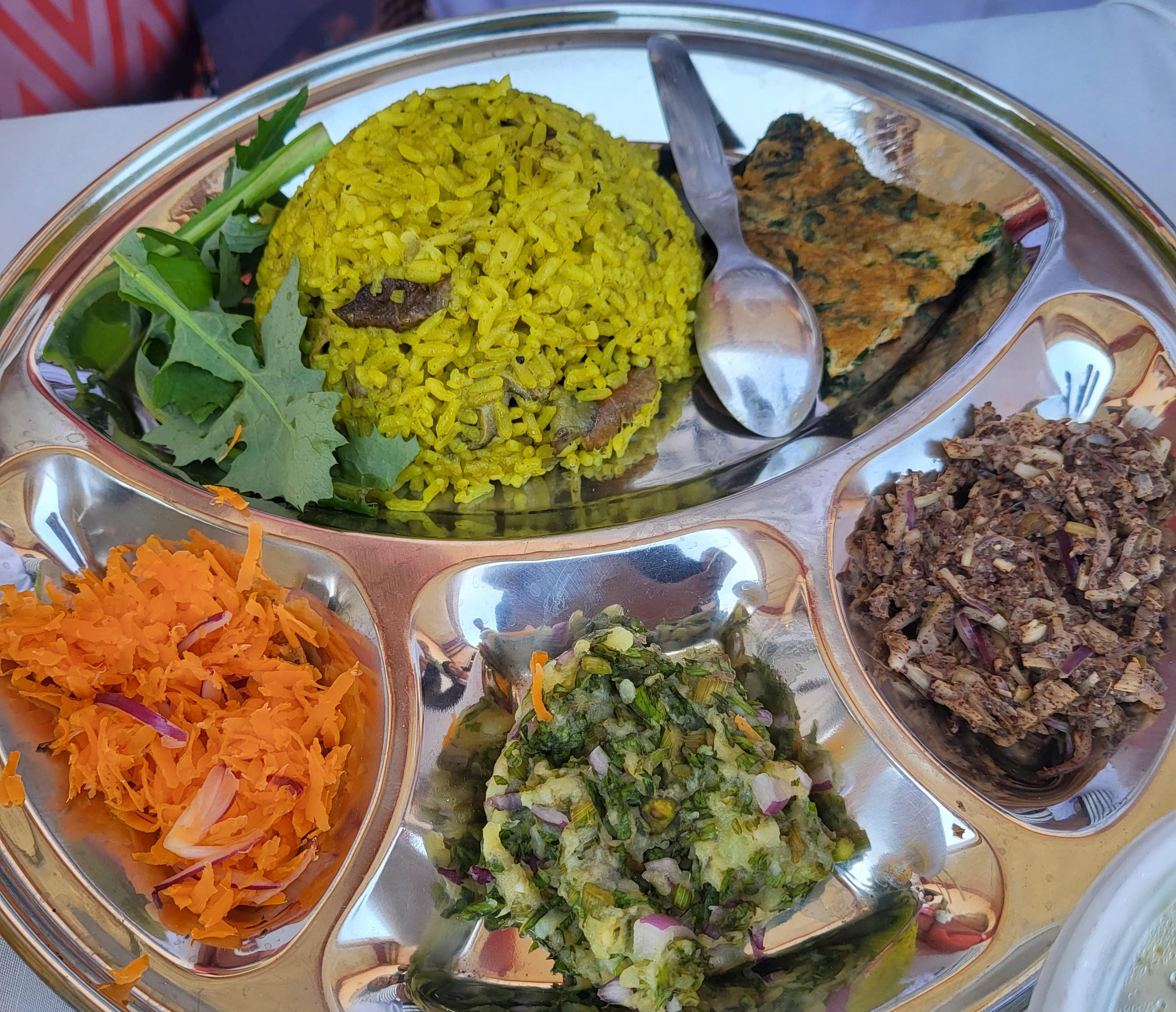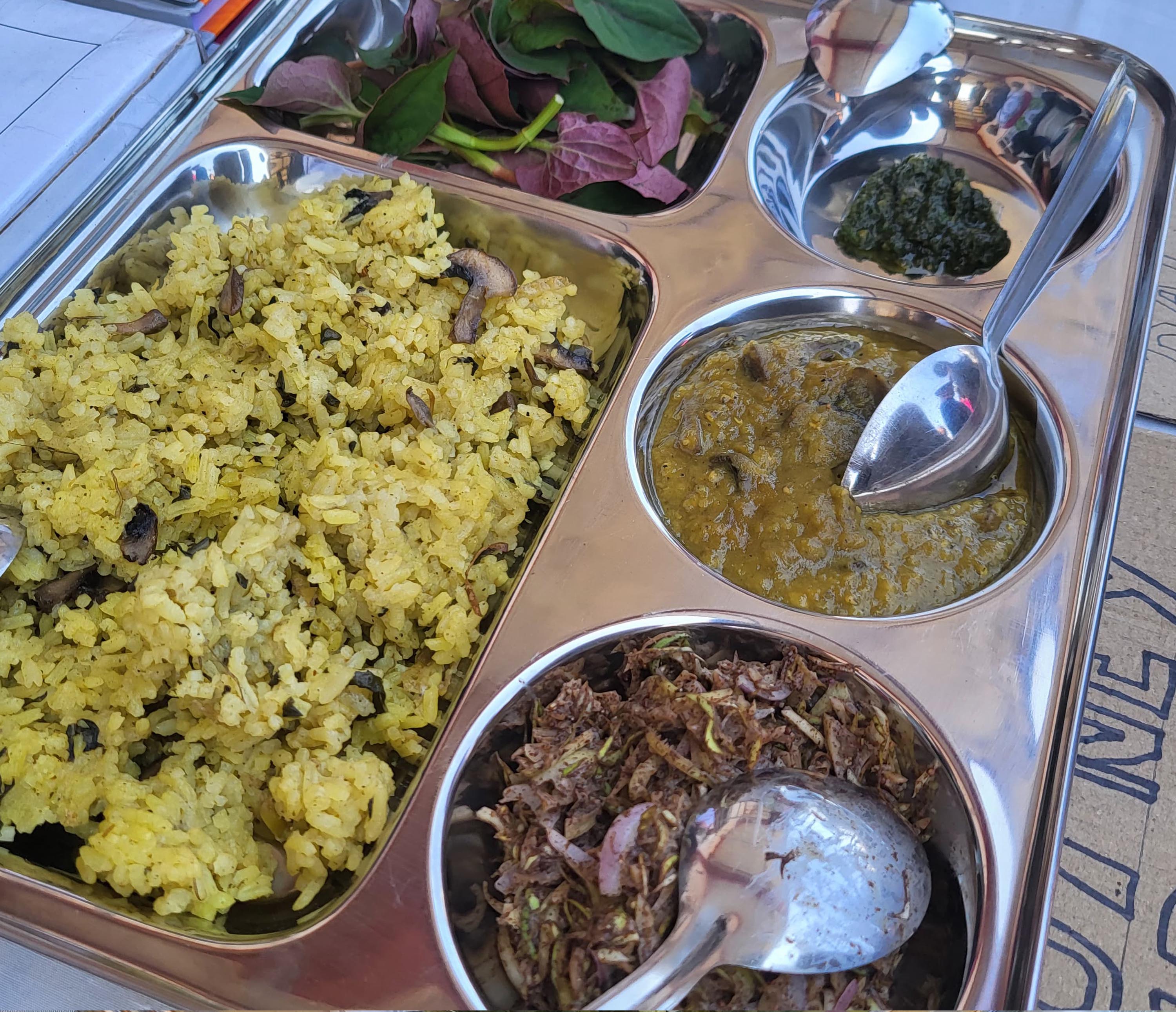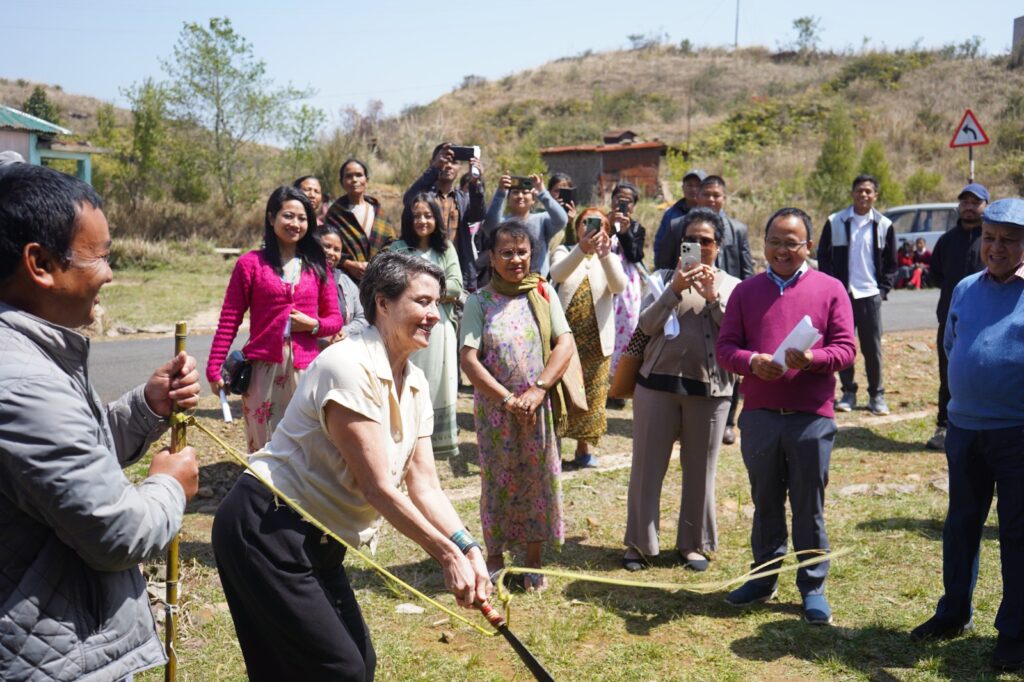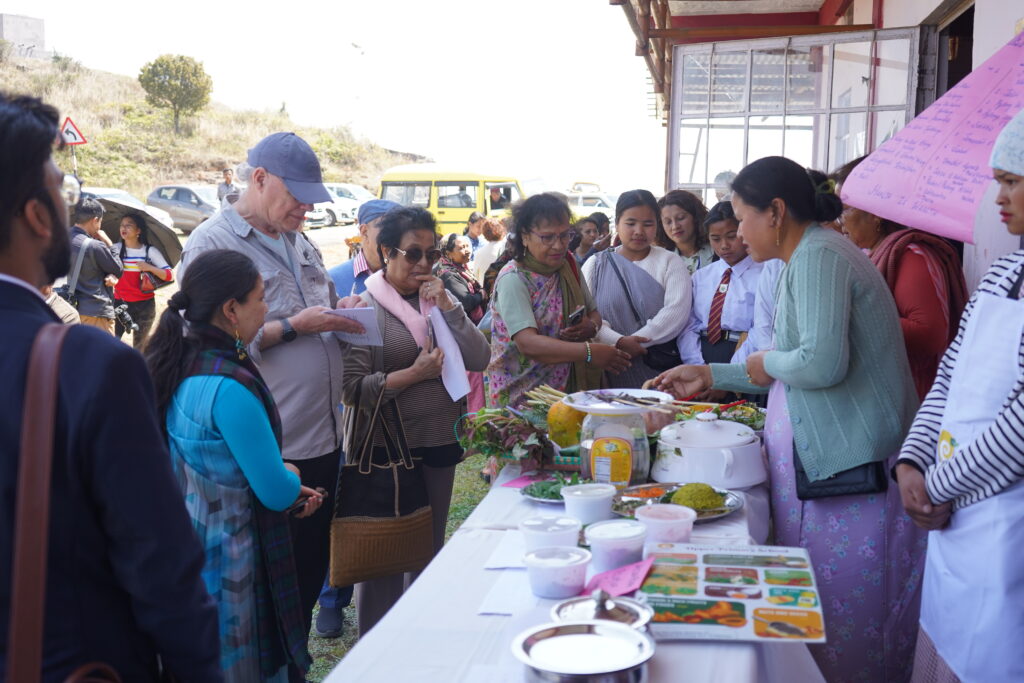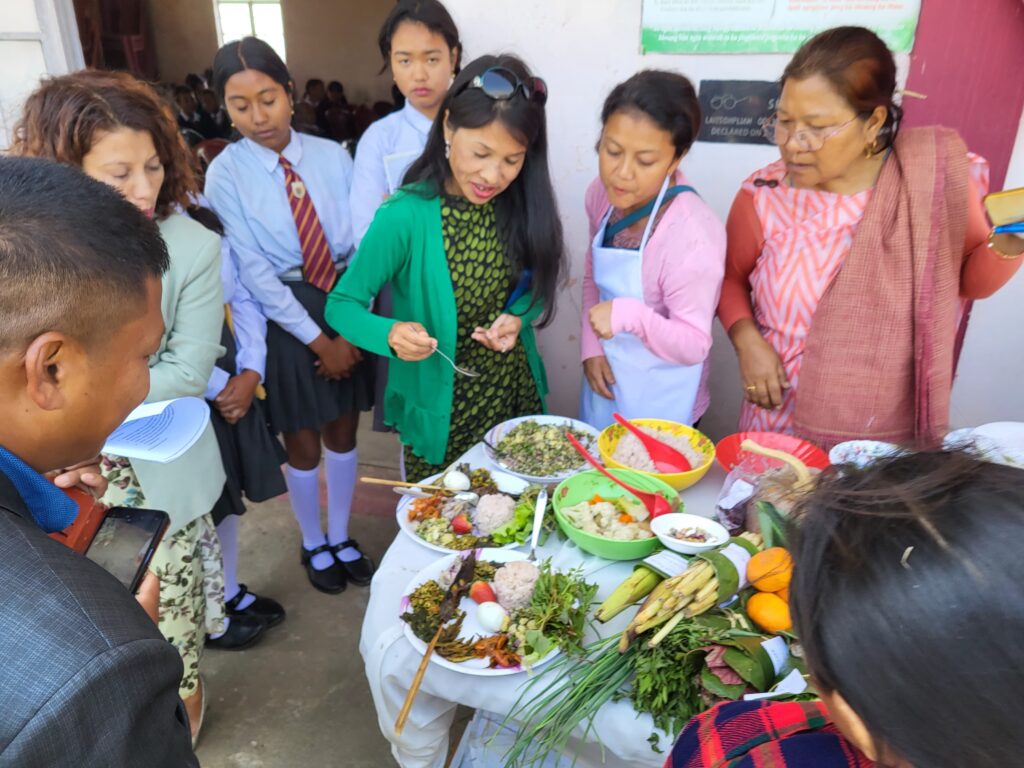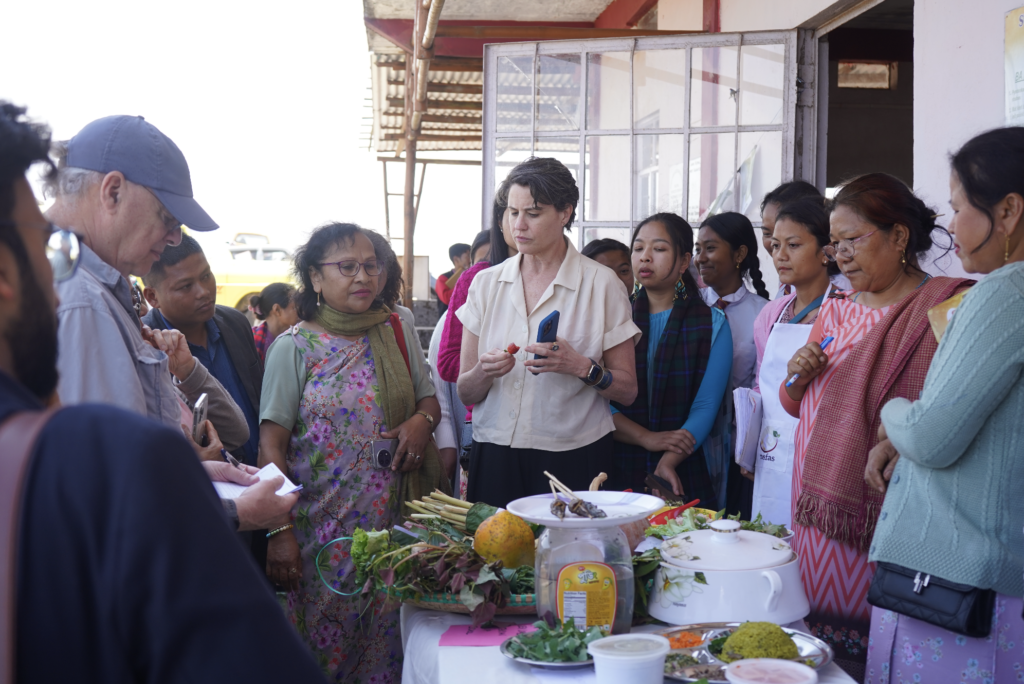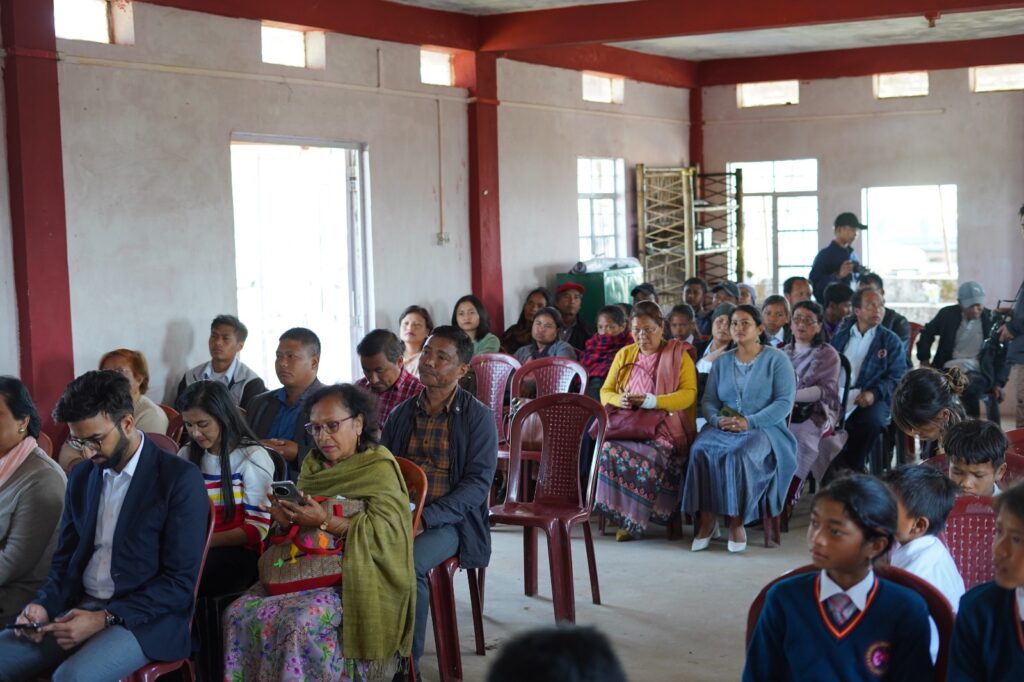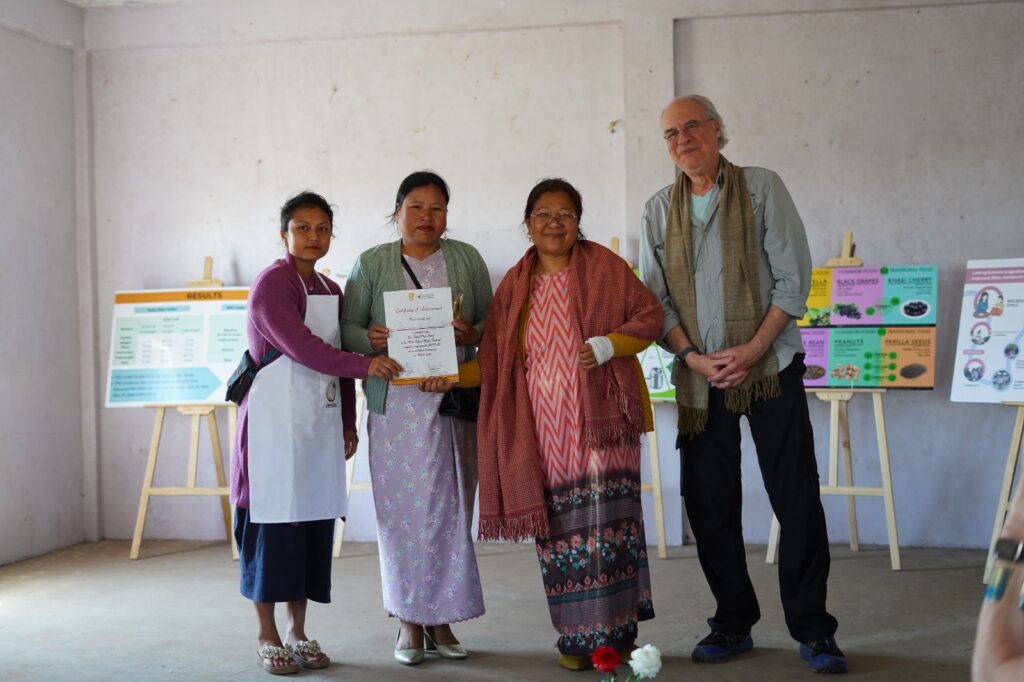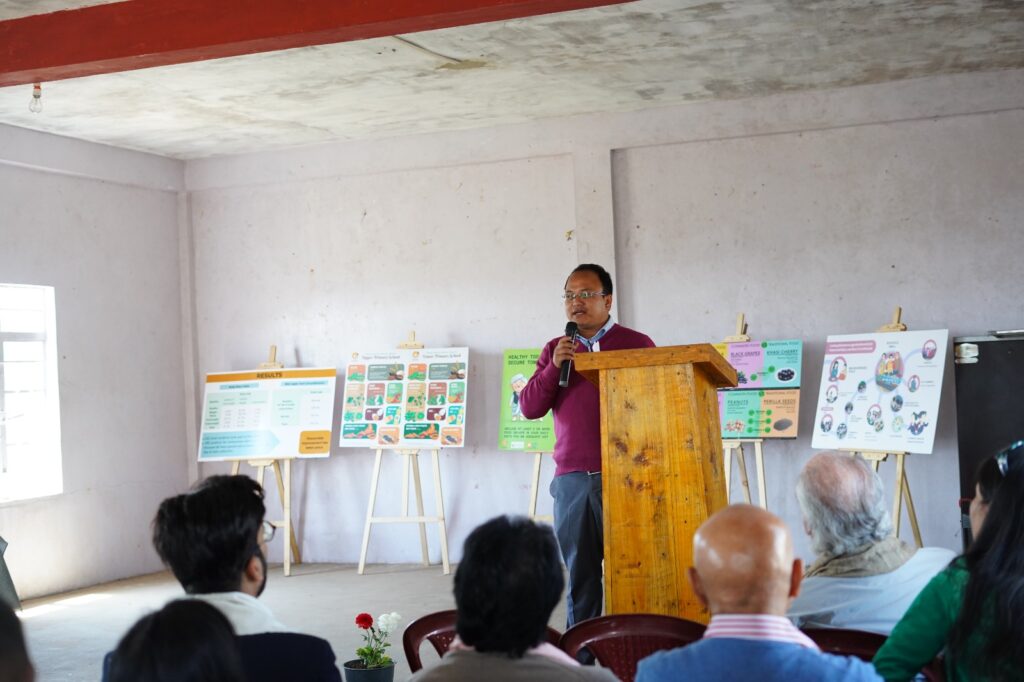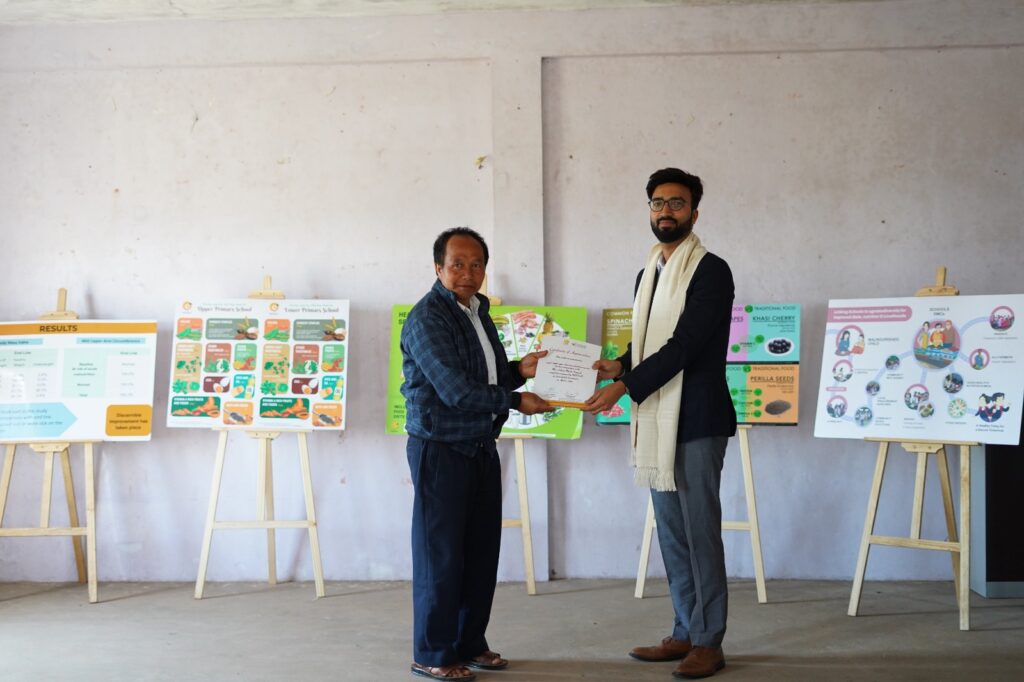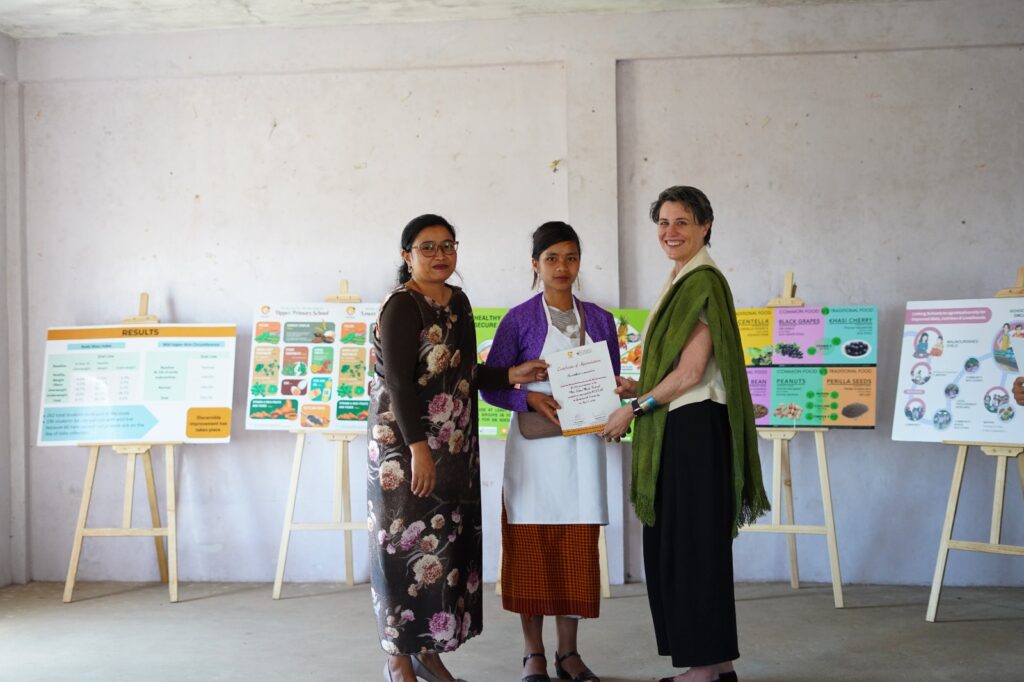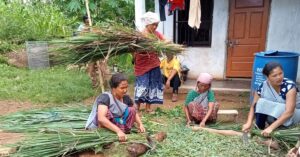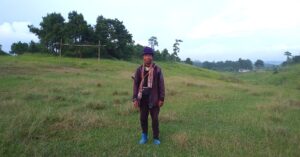Second Mini School Meals festival organised at Laitsohpliah by NESFAS: Khliehumstem Presbyterian LP & UP School wins the competition.
A one-day Mini School Meals Festival was organized by NESFAS on the 2nd of April 2024 at Laitsohpliah in East Khasi Hills. Several activists, reputed international and national journalists, bureaucrats, and others participated in the event along with the teachers, MDM cooks, students and community members of Laitsohpliah.
The festival kicked off with the inauguration by Kathleen Finlay, President of Glynwood Centre for Regional Food and Farming, New York. Stating that it was such an honour to inaugurate the festival, she mentioned that her organization is also working towards reviving food systems in the United States, especially in New York which has been erased over time. “There are still strong Indigenous Peoples’ Food Systems here (in Northeast India). Of course, there are modern threats to these systems but it is my hope these systems will help us shape the future and I believe NESFAS will make sure we safeguard these indigenous food systems,” she conveyed.
The competition was part of the “Linking to Agrobiodiversity for Improved Diets, Nutrition and Livelihoods” initiative by NESFAS which aims at increasing access of school children to healthy, nutritious, and diverse balanced diets through school meals. Six schools viz. Dewlieh Govt LP School, Nongtraw RCLP School, Mawmihthied Govt LP School, Khliehumstem Presbyterian LP & UP School, Subakalai SSA LP School and Laitsohpliah RCLP/UP School, took part in the competition which was one of the highlights of the festival. The competition showcased local school meal platters prepared by the five participating schools. Khliehumstem Presbyterian LP & UP School were adjusted winners of the competition.
In his welcome address, Mr. Nestar Kharmawphlang, Secretary Durbar Shnong Laitsohpliah, mentioned that NESFAS’ aim to uplift farmers in rural areas is highly commendable. He further shared that this project which is aimed at addressing malnutrition in Meghalaya is one among his favorite projects his community has collaborated on with NESFAS. “Our focus is on procuring ingredients for the school meals locally by utilizing our rich biodiversity. The school garden initiative has helped children get closer to nature and get a better understanding of the food they eat. I’m grateful to NESFAS for motivating our community to take up this initiative,” shared Bah Nestar.
In attendance during the festival was also the renowned American food journalist Mark Bittman who expressed his elation in being at the festival. The former columnist of The New York Times mentioned that mono-cropping has destroyed food systems worldwide and that the world needs to learn from indigenous communities such as in Laitsohpliah.
“We eat what we grow and if we grow plenty of plants, the health of both humans and the world will improve. We need to showcase these indigenous food systems to the world,” he said, before adding; “I’m impressed by what NESFAS is doing and I’m thankful to be here learning.”
Mr. Pius, Executive Director, NESFAS, speaking about the initiative, shared that NESFAS’ aim with the initiative is to get school children excited about local farming systems through various interventions. “The first key activity is inculcating in them the joy of learning within the school gardens,” he relayed, while giving a special mention to The Indigenous Partnership (TIP) for its support to the project. He added that other innovative ideas such as introducing wild edibles into school meals and sourcing of vegetables directly from farmers has been implemented into the project lately.
“This mini festival is an outcome of the good work that these schools have done and achieved so far. It is NESFAS’ hope to scale up this initiative and include more schools in the state,” Mr. Pius concluded.
Mrs. Phiba Tariang, Headmistress, Govt LP School Dewlieh, extended her gratitude to NESFAS for the school meals initiative and she put forth that, as much as the students, teachers have also been able to learn about various farming practices within the school garden itself. “Our school garden has helped us in implementing a menu plan that includes wild edibles which helps give nutrition to the children,” she commented while expressing her hope that the project would continue in the long run for the benefit of the school going children.
Mr. Alfred Iawphniaw, SDSEO Sohra, gave a short speech thereafter, praising NESFAS for their initiative and expressing his delight in having witnessed the school meals program firsthand. “I’ll convey a message to the higher authorities that the school meals model under NESFAS is a huge success and that we should replicate this model across schools in all parts of the state. We will surely try to work out an agreement with NESFAS to expand this initiative,” he remarked.
Ms. Patricia Mukhim, Editor, The Shillong Times, in her speech, stressed on the need to turn back to our indigenous food systems at a juncture when our health is being destroyed by fast foods. She applauded NESFAS for having undertaken initiatives to promote the same. “Our knowledge about our rich biodiversity is our way out and so we need to protect our biodiversity to sustain ourselves,” she said. “I would like to thank all the cooks who have done their best to provide the most nutritious food to our school children.” Ms. Patricia added.
Mr. Phrang Roy, Founding Chairperson, NESFAS, in his closing remarks extended his gratitude to all the participants mentioning that the event has been a success because of them. Regarding the School Meals initiative, he stated that the success of the initiative has been all down to the communities, cooks, and teachers. He then implored the international community to take part in the school meals initiative while stressing that the local Government also needs to step up with regards to support for such projects.

